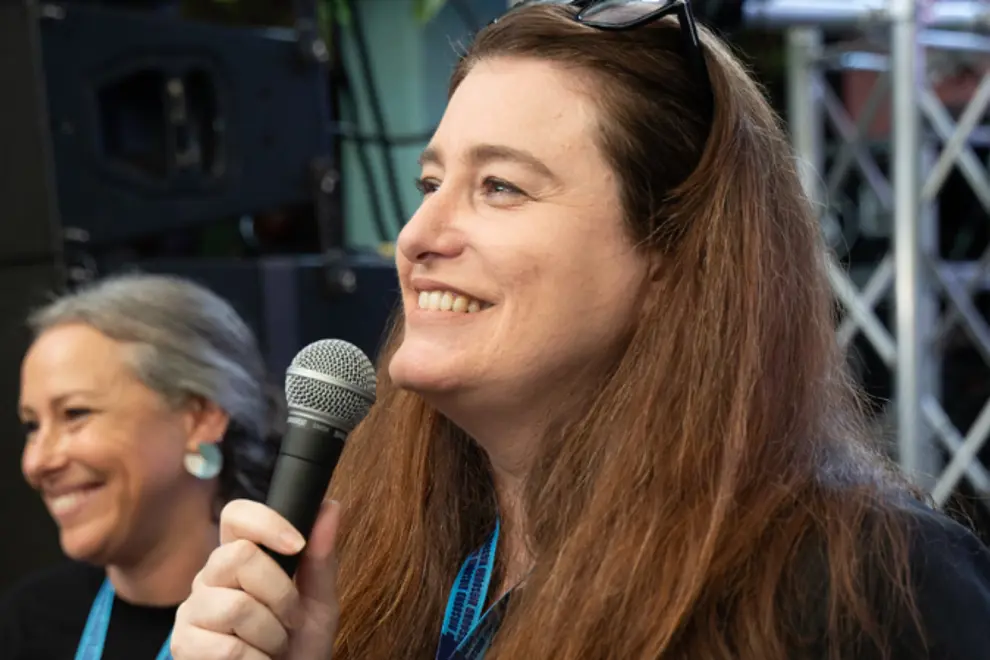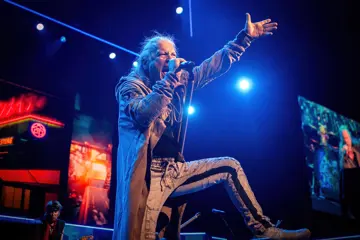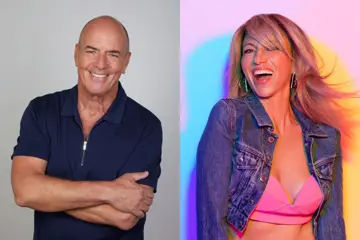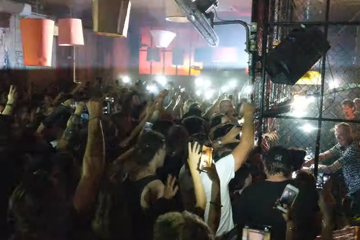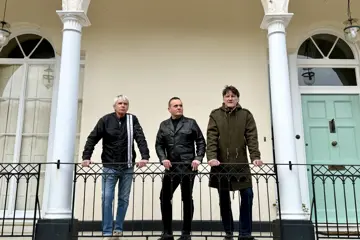Queensland’s peak music association, QMusic, underwent significant changes at the top last week. Natalie Strijland, its President for the last four years (and board member for nine), announced she wants to devote more time to her family, as well law firm NR Barbi Solicitor (for which she is the Managing Director) and the small business she is a partner at. Also leaving QMusic was D-J Wendt, a long-serving board member and Vice President since 2020, who has the 30th anniversary world tour of his company The TEN Tenors.
The Queensland music industry was full of praise as the news was announced. Oztix co-founder Brian “Smash” Chladil called Strijland and Wendt “the most successful leaders [QMusic] organisation has ever had”. Lawyer and QMusic Lifetime Member John Kenny echoed the sentiment, saying the pair “step down with the private and public funding for QMusic at record highs, and QMusic firmly endorsed as the key partner for the night time economy at the forthcoming Brisbane Olympics”.
New President Vivienne Mellish and Vice President John “JC” Collins now take the baton as the organisation – and the Queensland music industry it serves – moves into another significant era.
When Strijland and Wendt took over in 2020, they brought different skills to the table. Both had been in QMusic long enough to know the strength and drawbacks of its culture.
As a long-time music executive – most significantly as the producer and executive director of The TEN Tenors – Wendt had a deep knowledge of the music industry, and strong contacts within it, which he could bring into QMusic’s committees to address issues.
Don't miss a beat with our FREE daily newsletter
With her legal and business background, Strijland brought in people with solutions, set up a commercial plan for all aspects of the association, and had fostering a strong relationship with the Government front of mind.
She said: “I reached out to the people in Government who were involved in our sector, and asked them, What do I need to do in order for QMusic to be the key entity within the music industry?’ The answer I was given was, ‘Keep up the communication.’ That’s what we needed to do to be the organisation within that space to whom the Government could turn at any time, over any matter that related to the music industry.”
Discussions included everything from redeveloping the Fortitude Valley precinct before the Olympics, setting up regional QMusic offices in Central and Far North Queensland (“we needed more boots on the ground to in order to get the results they deserve”), more funding for venues and musicians, and reviving the need for a Nighttime Economy Commissioner as cost-of-living issues kicked in.
In the recent Queensland Budget, funding was provided for the latter two, with venues getting a $1.6 million package, as well as funding for the Commissioner.
As she looks forward to starting new own new chapter, The Music sat down with Strijland for some insight into the present and future of QMusic, and the Queensland music industry as a whole.
How long was QMusic discussing with the Premier, and other members of Parliament, to achieve this outcome in the Budget?
QMusic’s discussions actually started with the previous Premier, Annastacia Palaszczuk. She left a long term package to protect venues. She had a genuine love for the music industry.
We had been speaking to current Premier Steven Miles for awhile. But his personal interest accelerated when he attended the Queensland Music Awards this year. He was genuinely concerned with what was happening with venues.
[Following] the loss of The Zoo, Premier Miles personally reached out to me and QMusic’s excellent team and requested some ideas. Building on what we had already put to Government advocating for venues, we were able to achieve the $1.6 million package announcement.
How would you describe QMusic’s relationship with politicians on all sides of the spectrum, and how effective has the Queensland Parliamentary Friends of the Music Industry group been since it was set up in March 2022?
The Queensland Parliamentary Friends of the Music Industry was extremely important. It allowed us to have direct relationship with both sides of Government. There was probably been the biggest change post-COVID for QMusic, as all sides of Government now understand very clearly the impact of the music industry, and also how vulnerable it can be.
We are confident that our conversations on both sides of the aisles will lead to a post election commitment that will be positive for our music industry. We are lucky that in Queensland all sides of politics want the music industry to thrive.
What skills should the Nighttime Commissioner have?
It’s about talking to all sectors, whether that be venues [or] other entities around the areas. It’s important that issues like the cost of living and the cost of insurance be front-of-mind. Another real skill is to listen.
What were some of the major achievements that QMusic made in the last four years?
Funding of QMusic is now the highest it has ever been at all levels of government. Secondly, we achieved the $7 million venues assistance program during COVID. We had to really focus our attention on that, and we achieved it. It was critical for the sector.
The $3.9 million uplift for BIGSOUND included a significant First Nations package, which was very important to me. It enabled us to have our first [Aboriginal and Torres Strait Islander]-led program featuring speakers, performers, spaces and conferences to elevate their music and music workers.
Thirdly, the Qld Safety and Diversity Advisory Group and the First Nations Advisory Committee. They contain experts in their fields. They speak directly to the board, and tell us how to do our jobs better and give us advice so the board can make considered decisions.
Fourth, the composition of the board was changed to increase female and First Nations numbers, and include more regional representation.
Where do you hope BIGSOUND will be in five years?
It has so much potential. It needs to stay close to its roots. That’s really important. In five years, I am hoping it will have even more international component, bring in more international buyers, more international participants, a bigger export impact for Australian artists, and place Brisbane as a global First Nations city.
QMusic, through CEO Kris Stewart and board member John Collins, held important discussions with the Olympics and Paralympics 2032 Committee. What was the thrust of these?
We presented directly into the Olympics Legacy Committee around the essentialness of starting early with an Olympics music strategy. That includes how Queensland artists can be highlighted at the events, how music can be part of the planning for future use in all venues within the Olympics, and how to maximise the world’s eyes on Brisbane during that period to achieve a thriving Queensland music industry.
We were really excited about how central they wanted QMusic to place ourselves and who we represented as part of that discussion, So we are really happy with that, and we think there’s a lot of positive collaborations that can happen there. QMusic has got great vision moving forward.
How will it change Queensland’s music scene?
What needs to happen is a deep dive, to have even more conversations with venues and precincts. Brisbane could be the home of live music in Australia. We have the precincts for that to happen. We need to talk to the stakeholders, see what the issues are, and we need to be specific about improving them. The Olympics will definitely have a flow-on effect moving on from there.”
What skills do you think Vivienne Mellish and John Collins will need to show to move QMusic to the next step?
I think they’re amazing. They’re ideal for the roles because they have a great mix of industry and corporate knowledge. Also, importantly, they’re very well-liked by the industry. They’ve been on the board for a number of years. So they know the strategy, they know it's been working for the last years, and they’re immensely proud of their participation in that.
They’re on a trajectory and they will be build on that. As for skills, what I learned in my time, is that they need conviction in their decisions. A lot of people want to second-guess you and attack you, and you have to have courage in your decision making, especially when you want to achieve great things.

